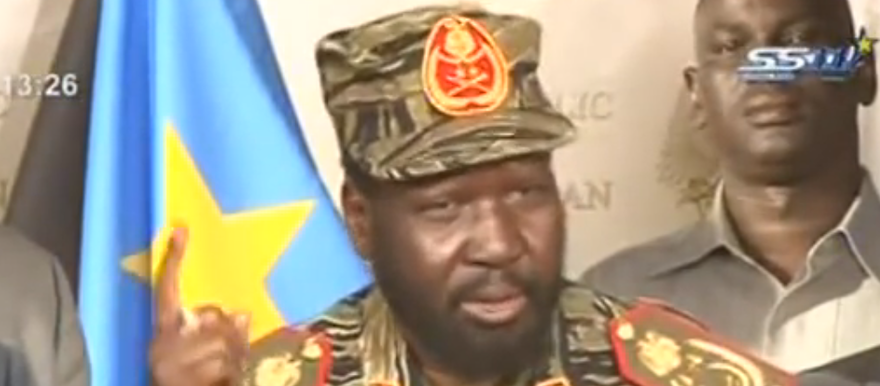South Sudan government threatens to close second Catholic radio

The South Sudanese government has threatened to close down the Catholic Church’s Voice of Hope FM in Wau, just over a month after forcing off-air Bakhita FM in Juba.
Western Bahr El Ghazal Deputy Governor Joseph Garang Zachariah said the station should limit its coverage to the state and avoid broadcasting news from other states especially stories related to SPLM-in-Opposition.
The Catholic Radio Network reported that Garang said the radio should distance itself from political coverage and “concentrate on homilies and Gospel music.”
This comes after similar threats were made against Bakhita FM in Juba, which the National Security Service warned should focus only on religious issues, preventing the station from addressing broader issues facing the society.
Authorities have been encouraged by their recent success in forcing off-air Radio Bakhita without legal challenge. “It seems the government is using Bakhita as a reference for radios that are not complying with their requests,” said one media representative contacted by Radio Tamazuj for comment.
The Catholic Radio Network (CRN) reports that the deputy governor “described Voice of Hope as a destructive station and that the government would direct it to a right way.”
CRN reports that the government threatened to effect the closure “using its new Media Bill” – a reference to the Media Authority Act, which establishes institutions for controlling the media.
The deputy governor questioned the station’s legality and mission in Wau, CRN further reports.
Voice of Hope is administered by the Diocese of Wau and is the only independent FM radio station in Western Bahr al Ghazal, the other station being government-run.
The station’s counterpart in Juba, Bakhita FM, is run by the Archdiocese of Juba, whose bishop made remarks Friday about the situation of the station, which for a month was kept closed by the government but now remains closed at the discretion of the Archdiocese itself.
Bishop Paulino Lokudu complained that he had not been consulted by the National Security Service prior to the closure of the station adding that he met President Salva Kiir about the issue.
“When it was closed, I was not consulted – I think the security people did not come to me to tell me that we are closing the radio. They just took away the keys from the service people there and I think that is not quite fair. And I think they have realized it and we have reconciled it very well.”
Radio Tamazuj reported on 12 September that the National Security Service returned keys to Bakhita FM only after reiterating threats against the station not to broadcast certain types of content.
According to the bishop, the station remains closed by Juba Diocese pending further review of the situation.
Radio stations in South Sudan remain under verbal orders not to broadcast interviews with opposition group SPLM-IO. Two international human rights groups, Amnesty International and Human Rights Watch, have called for a “formal retraction” of this censorship order.
The rights groups alleged that the media clampdown is also related to a ‘cover-up’ of crimes committed in South Sudan, after government security forces allegedly killed hundreds of civilians in the national capital and arranged for secret mass burials of their bodies by night.
Journalists in South Sudan have been regularly prevented from visiting hospitals, morgues, mass graves sites, and IDP camps. They have been encouraged to be more ‘nationalistic’ and supportive of the government.
File photo: President of South Sudan Salva Kiir speaking on state-run television
Related coverage:
S Sudan bishop says blood of victims 'crying out from the ground' (29 Sept)
Bishops declare South Sudan war ‘immoral’ (29 Sept.)